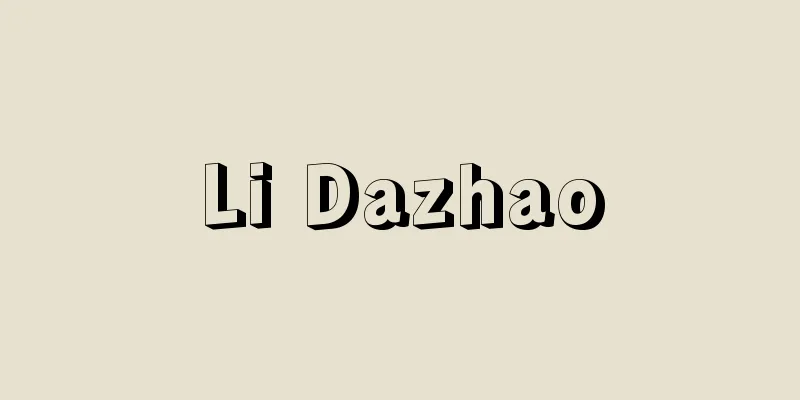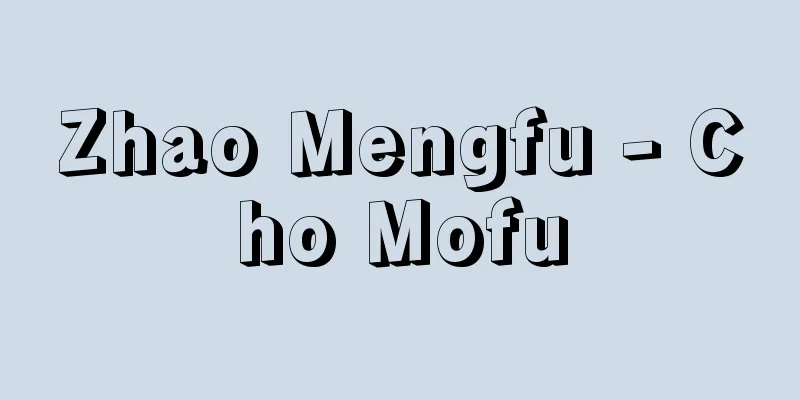Li Dazhao

|
A Chinese politician and thinker, one of the founders of the Chinese Communist Party. His pen name was Mingming and his pen name was Shuchang. He was born in Leting, Hebei Province. After graduating from Beiyang College of Law and Politics, he came to Japan as a foreign student in 1913 (Taisho 2), enrolled in the School of Political Science and Economics at Waseda University, and returned to China in 1916. In 1918, he became a professor and librarian at Beijing University and participated in the editing of the New Youth. He also founded the Weekly Review, and after the Russian Revolution, he published articles such as "The Victory of the Common People" and "The Victory of Bolshevism," introducing Marxism and the Russian Revolution, which had a great influence and played a leading role in the May Fourth Movement that began in 1919. In 1920, he met a representative of the Comintern in Shanghai, and in the same year, he created a communist group in Beijing, and in 1921 he helped to establish the Chinese Communist Party. During the Kuomintang-Communist cooperation, he cooperated with Sun Yat-sen and played a leading role, and went to Moscow for the 5th Congress of Comintern in 1924. During the first National Revolution under the Kuomintang-Communist cooperation, he was in Beijing and in charge of northern operations, but was arrested by Zhang Zuolin in April 1927 and executed. He was an outstanding leader in the early days of the Chinese Communist Party. [Ando Hikotaro] “Masao Mori’s “Lee Daejian” (1967, Jinbutsu Oraisha)” [Reference items] | | | | |Source: Shogakukan Encyclopedia Nipponica About Encyclopedia Nipponica Information | Legend |
|
中国の政治家、思想家で、中国共産党創立者の一人。字(あざな)は守常、筆名は明明。河北省楽亭の生まれ。北洋法政専門学校卒業後、1913年(大正2)留学生として来日、早稲田(わせだ)大学政治経済学部に入学、1916年帰国。1918年北京(ペキン)大学教授兼図書館長となり、『新青年』の編集に参加。また『毎週評論』を創刊、ロシア革命ののち、「庶民の勝利」「ボリシェビズムの勝利」などの文章を発表してマルクス主義、ロシア革命を紹介し、大きい影響を与えるとともに、1919年に始まる五・四運動で指導的役割を果たした。1920年コミンテルン代表と上海(シャンハイ)で会い、同年北京に共産主義者のグループをつくり、1921年中国共産党の創設にあたった。国共合作に際しては孫文に協力して指導的役割を演じ、1924年のコミンテルン第5回大会にはモスクワに赴いた。第一次国共合作下の国民革命の際は、北京にあって、北方工作を担当していたが、1927年4月張作霖(ちょうさくりん/チャンツオリン)によって逮捕され、刑死した。中国共産党初期の優れた指導者であった。 [安藤彦太郎] 『森正夫著『李大釗』(1967・人物往来社)』 [参照項目] | | | | |出典 小学館 日本大百科全書(ニッポニカ)日本大百科全書(ニッポニカ)について 情報 | 凡例 |
Recommend
Hairpin of Love - Hairpin of Love
...It is also called Erica False because its leav...
Nizan (English spelling) Paul Nizan
French novelist and philosopher. One of the leadi...
O'Hare International Airport
...New York also has two other airports: La Guard...
Functional hardware - Yesterday's things
...Metal parts used in architecture, excluding th...
Yuminagashi
Heike-kyoku (Taira-kyoku) song titles, Noh-kyoku (...
Amorous woman - Amorous woman
Ihara Saikaku's Ukiyo-zoshi. Published in Jun...
Waiter's entrance
〘noun〙① An entrance through which waiters and othe...
Former Keikanden - Gangyokanden
...The annual rice stipends presented by each pro...
Ingold, CK - Ingold
…The study of structures and properties determine...
Pulse Wave - Myakuha
It measures the changes in pressure or volume of p...
Judgement - Hanshi
〘 noun 〙 The words used by a judge in a poetry con...
Decoration craftsman
Also written as "kanzashi", "kazash...
mericarp
...nuts are relatively large, hard-shelled fruits...
Humor - Kai
[Common Kanji] [Sound] Kai (Kanji) 1. To be in har...
"The Geometry Book"
...There are many names in mathematics, beginning...





![Yuwa [town] - Yuwa](/upload/images/67cd12c8e3cfb.webp)

![Aoki [village] - Aoki](/upload/images/67cacfeed7e35.webp)

